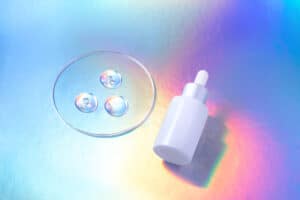In our fast-changing world, with an abundance of convenience foods and disrupted eating patterns, it is not always easy to ensure that children and teens are getting all the nutrients they need. It may be necessary to consider nutritional supplements to supplement these deficiencies. But which supplements are essential for their growth and development? In this guide, we explore necessary supplements for children and teens based on specialized knowledge. We’ll navigate you through this complex subject so you can make informed decisions about your children’s health and well-being.
Necessary supplements for children and teens
It is well known that a balanced and nutritious diet is the basis for the growth and development of children and teens. However, modern lifestyles and food choices can sometimes lead to nutritional deficiencies. This makes it necessary to supplement this deficiency with specific supplements. But, what supplements are necessary for children and teens?
The nutritional needs of children and teens vary depending on their age, gender and general health. However, there are some supplements that are generally considered essential. This includes Vitamins A, C and D, iron, calcium and omega-3 fatty acids. Let me walk you through each of them:
- Vitamin A: Supports the immune system, contributes to good vision and promotes growth and development.
- Vitamin C: This is an antioxidant that contributes to the immune system and helps form collagen, a protein needed for skin, blood vessels, muscles and bones.
- Vitamin D: Helps absorb calcium and phosphorus, which are important for strong bones and teeth.
- Iron: Necessary for the production of hemoglobin, the substance in red blood cells that transports oxygen through the body.
- Calcium: Age is an important factor in determining the right amount of calcium for children and teens. It is most needed during the growth spurt in adolescence.
- Omega-3 fatty acids: These fatty acids are crucial for brain and nervous system development, as well as having a beneficial effect on mood.
While it may be tempting to give your child multiple supplements right away, it is important to remember that every child is unique. It is essential to match your child’s diet and specific needs to the choice of supplements.


Hello, I am Elena Braccioli
20 years of experience in developing and selling nutritional supplements.





Importance of nutritional supplements for growth and development
A child’s growth period is crucial to their overall development and health. During this period, not only does their physical size increase, but also important organs and systems fully develop. This is a biologically intensive process and optimal intake of certain nutrients can have a significant impact on the child’s growth and development.
The role of dietary supplements in this is twofold. On the one hand, they can help ensure necessary nutrients when a child’s diet does not provide them. This is especially useful for children with limited appetites, picky eaters or those following a specific diet. On the other hand, nutritional supplements can function as a safety net to address any nutritional deficiencies that may occur during the rapid growth phases of childhood and adolescence.
- Calcium: for building and maintaining strong bones and teeth
- Omega-3 fatty acids: to support brain development and behavior
- Iron: essential for growth, development and learning ability
- Vitamin D: helps absorb calcium and contributes to a healthy immune system
| Dietary Supplement | Role in Child Development |
|---|---|
| Calcium | For building and maintaining strong bones and teeth |
| Omega-3 fatty acids | To support brain development and behavior |
| Iron | Essential for growth, development and learning ability |
| Vitamin D | Helps absorb calcium and contributes to a healthy immune system |
However, dietary supplements should always be used to supplement, not replace, a healthy diet. Remember: nutritional supplements are not magic pills that can solve all nutritional deficiencies. A balanced, nutritious diet remains the best source of essential nutrients for children and teens.
Overview of essential vitamins and minerals for children and teens
Essential Vitamins for Children and Teens Vitamins are crucial for the healthy growth and development of children and teens. First, vitamin A is a fundamental nutrient needed for healthy skin, normal vision and a strong immune system. Vitamin B, including B6 and B12, are necessary for optimal brain function and energy production. Finally, vitamin D is necessary to absorb calcium, which is essential for the healthy building of bones and teeth. “`html
- Vitamin A – for healthy skin, normal vision and a strong immune system
- Vitamin B (B6 and B12) – for optimal brain function and energy production
- Vitamin D – helps absorb calcium, essential for healthy bones and teeth
“` Essential minerals for children and teens In addition to vitamins, there are a number of essential minerals that support the healthy growth and development of children and teens. Iron supports healthy blood cells and helps prevent fatigue, while calcium and magnesium contribute to strong bones and teeth, and zinc helps strengthen the immune system and promote wound healing. “`html
- Iron – supports healthy blood cells and helps prevent fatigue
- Calcium and Magnesium – contribute to strong bones and teeth
- Zinc – strengthens the immune system and promotes wound healing
“`These nutrients are vital for the healthy growth and development of children and teens. It is important to note that dietary supplements should be viewed as supplementary sources of these essential nutrients and not as substitutes for a balanced diet. A specialized pediatrician or nutritionist can guide in making the best choices regarding nutritional supplements for each individual situation.
Sports Nutrition Supplements
Frequently Asked Questions
Good Supplements for Sports: Protein supplements (such as whey), creatine, BCAAs, and omega-3 fatty acids are some of the most recommended supplements for athletes. They aid in muscle building, recovery and overall performance enhancement.
Oatmeal is an excellent source of slow carbohydrates and provides long-lasting energy, which is ideal for athletes.
Vitaminen zijn organische verbindingen en kunnen door het lichaam worden afgebroken, terwijl mineralen anorganisch zijn en in hun natuurlijke vorm blijven in het lichaam.
Vermoeidheid kan duiden op een tekort aan ijzer, vitamine D, vitamine B12 of foliumzuur.
Een tekort kan leiden tot gezondheidsproblemen zoals vermoeidheid, zwakte, een verminderd immuunsysteem, en in ernstige gevallen specifieke ziekten zoals scheurbuik of rachitis.
Belangrijke mineralen zijn calcium, magnesium, ijzer, zink, natrium, kalium en fosfor.
Dit hangt af van je dieet en gezondheid. Voor sommige mensen kan een multivitamine nuttig zijn om tekorten te voorkomen, maar het is altijd het beste om voedingsstoffen eerst uit voeding te halen.
Mineralen ondersteunen functies zoals botvorming, hartslagregulatie, zuurstoftransport, en onderhoud van het zenuwstelsel.
Bladgroenten, noten, zaden, vis, schaaldieren, volkoren producten, en zuivelproducten zijn rijk aan mineralen.
Door een gevarieerd dieet te eten dat rijk is aan bovenstaande voedingsmiddelen.
Dit kan worden bepaald op basis van je leeftijd, geslacht, levensstijl, gezondheidstoestand en dieet.
Calcium, magnesium en kalium zijn essentieel voor spiergezondheid.
Natuurlijke mineralen zijn die welke rechtstreeks uit voedselbronnen of uit de aarde worden gewonnen, in tegenstelling tot synthetische supplementen.
Zink is te vinden in vlees, schaaldieren, zuivel, volkoren granen, noten en bonen.
Zink is belangrijk voor wondgenezing, immuunfunctie en DNA-synthese.
Zink kan interfereren met de absorptie van bepaalde antibiotica en ijzer. Het is raadzaam om zink en deze stoffen met een tussenpoos in te nemen.
Zink en selenium zijn te vinden in voedingsmiddelen zoals noten (vooral paranoten), zeevruchten, vlees, en volkoren producten.

Essential Supplements for Healthy Hair and Nails in Teens
Do you ever experience brittle nails or fine hair that just won’t grow? You are not the only one! Among both teenagers and adults, hair and nail problems are among the most common beauty problems. Fortunately, you can improve the health of your hair and nails in a big way with certain essential supplements. We

Improve Your Teen’s Memory with Nutritional Supplements
Is your teen forgetful? Do they always lose their homework or can’t remember the material for their exams? It can be particularly frustrating if you find that your teenager is having problems with his memory. But before you judge them too harshly, you should know that teenagers’ brains are still developing. They need all the
Specific supplements recommended for children and teens
Vitamin D: This vitamin is crucial for bone growth and the immune system. Despite the fact that the body can produce vitamin D through exposure to sunlight, many children and teens today appear to be deficient. This is due to lack of sufficient outdoor activity and sun exposure. A vitamin D supplement can help with this and is commonly recommended, especially during the winter months when exposure to sunlight is minimal. Omega-3 fatty acids: These fatty acids are essential for brain development and eye health. It is naturally found in oily fish, but many children and teens do not get enough of it. Therefore, an omega-3 supplement such as fish oil or algae oil can be a good addition to their diet. Vitamin B12: Especially important for children and teens who are vegetarian or vegan, since vitamin B12 is mainly found in animal products. This vitamin is necessary for red blood cell production and healthy nerve function. Deficiency can lead to fatigue and weakness. Therefore, a B12 supplement is often recommended for children and teens who do not eat animal products. The recommended dosage and type of supplement may vary as children age and their nutritional needs change. It is always important to seek advice from a health professional or dietitian before starting a supplement regimen for children and teens.
Safety and dosage of supplements for children and teens
It is critical to use responsible and safe dosing of supplements for children and teens. Overdosing can potentially cause health problems such as diarrhea, nausea and other digestive problems. Always follow the advice of a nutritionist or physician before introducing supplements into your child’s diet. Certain safety guidelines are important to consider. Thus, supplements are not a substitute for a healthy and balanced diet. It is always better to get vitamins and minerals from foods rather than supplements, to ensure a balanced intake of nutrients. Always keep these supplements out of the reach of children to prevent uncontrolled ingestion. Pay attention to the dosage schedule. Overdosing can be as harmful as insufficient nutrition. Here is a simple guideline:
| Age Group | Recommended Dosage |
|---|---|
| 4-8 years | Half dose adult |
| 9-13 years | Two-thirds dose adult |
| 14-18 years | Full dosage adult |
Keep in mind that these are only general guidelines. Each teenager is unique and may have different nutritional needs. It is therefore advisable to have your child’s individual needs assessed by a nutritionist.
Relationship to nutrition
Healthy nutrition is the basis for a healthy lifestyle. Supplements can support based on personal needs.


Daily exercise is healthy
Exercise, of course, is healthy. Specific sports-related supplements can help with performance.
Conclusion: The importance of a balanced diet and supplements in childhood and teenage years
In the crescendo of our research, the evidence clearly rests. A balanced diet and nutritional supplements are fundamental to giving children and teens the best start in life. Research around the world continuously underscores the importance of adequate nutrition during the developmental years, with a clear link to both cognitive and physical growth. Nutritious meals and thoughtful supplementation combine to create a robust and resilient health profile, ready to meet the challenges of childhood and adolescence. Children following a diet rich in essential vitamins and minerals, and supplemented as needed, show improvements in areas such as school performance, athletic ability, and general mood and behavior management.
- Vitamin D: Essential for strong bones and teeth, helps absorb calcium and phosphorus.
- Omega-3 fatty acids: Necessary for brain development and cognitive function.
- Vitamin B12 and Iron: Crucial for red blood cell production and preventing anemia.
- Creatine: Enhanced athletic performance and cognitive improvements have shown.
Finally, we want to remind you that while our guide is useful for basic knowledge, there is no substitute for personalized medical advice. Each individual has unique nutritional needs and possible allergies or reactions. If you are considering nutritional supplements for your child’s health, always consult a qualified pediatrician or similar health professional first.
In conclusion, our health and that of our children is of paramount importance. It is imperative that we take steps to ensure they get the essential vitamins and minerals they need for growth and development. Dietary supplements can be a valuable addition in this regard, especially for children and teenagers who, given their growth and development, have specific nutritional needs. At foodsupplementz, we have the specialized knowledge and dedication to help you make the right choices when it comes to nutritional supplements for your children. We understand that each child is unique, and therefore a personalized approach is required when making such important decisions.
Make an appointment
Please contact me and I will respond as soon as possible.